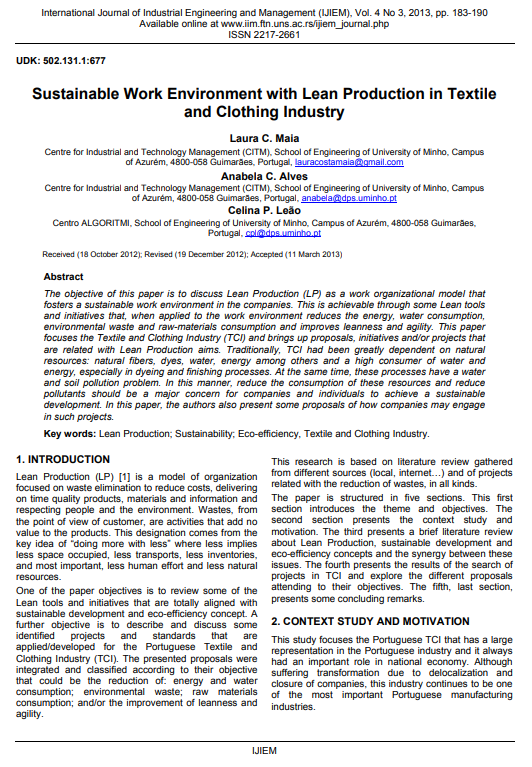Sustainable Work Environment with Lean Production in Textile and Clothing Industry

Published 2013-09-30
abstract views: 724 // FULL TEXT ARTICLE (PDF): 0
Keywords
- Lean Production,
- Sustainability,
- Eco-efficiency,
- Textile and Clothing Industry
How to Cite
Copyright (c) 2023 International Journal of Industrial Engineering and Management

This work is licensed under a Creative Commons Attribution 4.0 International License.
Abstract
The objective of this paper is to discuss Lean Production (LP) as a work organizational model that fosters a sustainable work environment in the companies. This is achievable through some Lean tools and initiatives that, when applied to the work environment reduces the energy, water consumption, environmental waste and raw-materials consumption and improves leanness and agility. This paper focuses the Textile and Clothing Industry (TCI) and brings up proposals, initiatives and/or projects that are related with Lean Production aims. Traditionally, TCI had been greatly dependent on natural resources: natural fibers, dyes, water, energy among others and a high consumer of water and energy, especially in dyeing and finishing processes. At the same time, these processes have a water and soil pollution problem. In this manner, reduce the consumption of these resources and reduce pollutants should be a major concern for companies and individuals to achieve a sustainable development. In this paper, the authors also present some proposals of how companies may engage in such projects.
Article history: Received (18 October 2012); Revised (19 December 2012); Accepted (11 March 2013)

